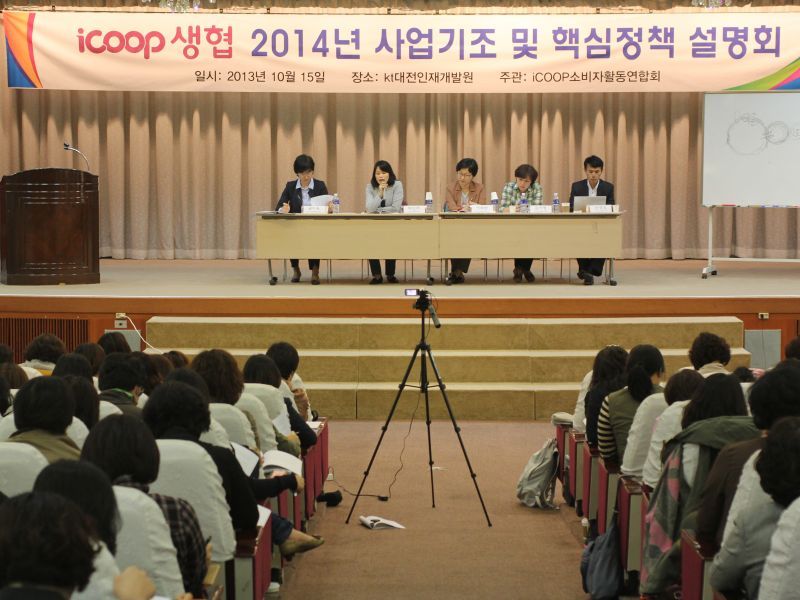
Korean consumer co-operatives have laid down key priorities for 2014, which include strengthening co-op values and co-operation among co-operatives. Over 300 members and employees of Korean consumer co-operatives agreed on a common business plan for 2014 during a meeting hosted by iCoop, one of the six consumer co-operative federations in South Korea.
The business plan was designed to enhance the role of consumer co-operatives as drivers of innovation, particularly in the context of the global economic crisis. As part of the event, Korean co-operators also took part in various workshops and panel discussions led by a number of experts, including Moon Bokyung, the executive director of Korea Social Economy Network.
Kim Misun, the chair of iCoop Yankcheon Coop and chair of promotion committee for 2013 business plans said: “For consumer co-operatives to survive in the competitive and rapidly changing market environment, we should focus on the new market, that can be our brand products, which are only accessible through our Natural Dream stores.”
iCoop operates across various business sectors. It has a home delivery service, an online order system and a chain of food stores called Natural Dream Stores. The society is also supporting Korean producers and organic food through its initiatives iCOOP Valley and Organic Food Cluster. iCoop Korea practices ethical consumtion through the production and supply of Korean native wheat as well as fair trade products from developing countries.
iCoop also has a price stabilisation fund and pre-purchase of domestic grain fund which is collected by producers. When the price of agricultural products soars, the fund is used so that members can buy iCoop Korea’s products at prices below the market place while producers can maintain stable profit and continue to sell their products to iCoop Korea.
By 2014, iCoop hopes to achieve a turnover of KRW 480 billion, which would represent an increase of KRW 60 billion from 2013. iCoop also aims to increase membership to a total of 240,000 members. The organisation also hopes to open 25 new stores by next year. It plans to have 300 outlets and 100 co-operative schools by 2016. Another key objective for iCoop is to stabilise the iCoop credit card business.
iCoop, which stands for Individuals, Ideals, Innocence and Innovation was founded in 1998 by citizens in the local community, mainly local women. The society was set up to change consumer behaviour, by promoting respect for human people and labour, safeguarding the agriculture and the environment and ensure food safety.
The Korean consumer co-operative sector comprises of 391 co-operatives with over 630,000 members. iCoop includes 76 co-operatives, with a membership of 191,842 members (one per cent of Korean population).




